Interview with Janez Janša, former Prime Minister of Slovenia and leader of the Slovenian Democratic Party (Slovenska demokratska stranka, SDS): “The political processes in Europe over the past decade and a half turned away from democracy.”
Janez Janša has been one of the main figures in Central European politics since the fall of Communism in the region. He played an active role in winning Slovenia’s independence from Yugoslavia, and has been Prime Minister on three occasions (2004-2008, 2012-2013, and 2020-2022). Mr Janša is well-known for being the leader of his party, the centre-right SDS, since 1993, as well as for his prolific Twitter activity, which has earned him with the nickname of Marshal Twitto, a reference to Yugoslavia’s former leader, Marshal Tito. Mr Janša was jailed in 1988 for his activism against Communism. He was sentenced to prison a second time, this time for corruption, in 2013. The latter judgment was politically motivated, according to Mr Janša, who claimed to be innocent. Both national and international observers recognised considerable violations of Janša’s rights during the court case, and his conviction was unanimously overturned by Slovenia’s Constitutional Court on 23 April 2015.
The Visegrád Post had an opportunity to meet with Janez Janša in Karpacz, Poland, where Slovenia’s best-known political figure was participating as a conference panelist. Our editor-in-chief, Ferenc Almássy, conducted an interview with him about his role in his country’s independence, his support for Ukraine and what he believes will be the outcome of the war, his view of Viktor Orbán’s current position, the European Union’s evolution, the Left’s domination of Slovenia since the end of Communism, and his own political future.
Ferenc Almássy: Janez Janša, thank you for this interview for TV Libertés and the Visegrád Post. You have been Prime Minister of Slovenia three times, but you were also involved in the process of winning independence for your country from Yugoslavia. As an introduction to our interview, I would first like to get back to this period and discuss your role in Slovenia’s independence.
Janez Janša: It’s quite a long story, so I don’t know if you have enough time. [laughter] In 1988, I was doing a similar job to what you are doing now. I was a freelance journalist for a small newspaper in Slovenia, and I wrote some critical articles regarding the Communist Party of Yugoslavia and the Yugoslav People’s Army. I was arrested by the regime together with some other journalists, put into a military prison, tried, and sentenced to years in prison. But when we were imprisoned, the Slovenian people went out onto the streets and protested for the first time since the Communist takeover in Slovenia. This changed the situation in Slovenia.
Because of this, new political parties were formed. Semi-democratic elections were held in Slovenia. With a slight majority of these new, democratic political forces, we established a government. I was the Defense Minister of this government – a Defense Minister without an army.
Ferenc Almássy: But in a time of conflict.
Janez Janša: Yes. Then we called a referendum and asked the Slovenian people if they still wanted to live in a Communist dictatorship in Yugoslavia, or if they wanted to leave it to establish an independent Slovenian state. Over 90% of the population voted yes, and six months after the vote we declared independence. The next day we were attacked by the Yugoslav People’s Army. It was an aggression like the Russian aggression now in Ukraine, with similar attitudes and a similar range of power.
We had no tanks, no warplanes, no heavy weapons. The Yugoslav People’s Army at that time was the fifth-strongest army in Europe according to the numbers, but in reality it was corrupt at that time, like the Russian army, and like all Communist armies were. The system was not something that people wanted to die for. We were at a disadvantage, but we were defending our own country, and this is why we prevailed. After ten days, we controlled our territory. The Yugoslav People’s Army withdrew from Slovenia. We were free.
So this is why, when Russia invaded Ukraine, I knew exactly how they feel. It’s very important that somebody supports them, and goes there to support them, because when we were attacked, nobody came to support us.
Ferenc Almássy: That brings us immediately to another question that is a hot topic, namely the war in Ukraine. Obviously you support Ukraine. We can even see it on your vest. In a nutshell, what is your position regarding Ukraine and the support for Ukraine, and what do you think will be the outcome of this conflict?
Janez Janša:
There is only one positive end to this conflict – positive for Europe, for the Western world, for democracy, if you want this wording – and that is the military defeat of the Russian troops in Ukraine. This is the only positive outcome.
It’s difficult to predict when this will happen, but it’s very clear that if Russia prevails in Ukraine we will have a very dangerous situation in all other parts of Europe, and in Eastern Europe especially. Western public opinion in particular is not sufficiently aware of this situation. So Ukrainians are fighting and dying for us as well, and they deserve all the kinds of help we can provide for them: military, financial, humanitarian, everything.
Ferenc Almássy: When speaking about Ukraine and the support for Ukraine, and as a half-Hungarian journalist, I have to ask this question: How do you perceive the Hungarian position? From the Hungarian perspective, it’s not their war, and they try to defend their national interest, especially considering the fact that they are dependent on Russian energy, so they try first of all to make sure that they will still have energy. You were close to Viktor Orbán. You also worked with him – I’d like to get back to this later – but how do you see the Hungarian position on Ukraine?
Janez Janša: Viktor Orbán was my friend. He still is my friend. I also understand the differences between the public perception of Ukraine in Poland, for instance, as well as in Slovenia and Hungary. There are differences. Unfortunately, there was some fierce political fighting between Ukraine and Hungary regarding Ukraine’s Hungarian minority because Ukraine banned the use of the languages of the minorities in some parts of the country. I can imagine what would happen if, for instance, Austria were to make such a move against our minority in Carinthia. Slovenia would be in flames because of protests and so on.
So I know of these differences, and they’re understandable. We also know the history. But still, when people are dying, this is a different situation, so we have to put such differences aside. And Hungary partially did it, so there is huge help for refugees, humanitarian aid, and medical aid for Ukrainian soldiers in Hungary. But Hungary is against military aid to Ukraine, which is crucial, so here we have different opinions. I think that Russia should not prevail in Ukraine, and to prevent this we also have to help the Ukrainians with military aid. This is crucial. It’s about our future.
But regarding relations between Hungary and Russia, we have to understand how we came to this situation. Hungary was pressured, mostly unjustifiably, very hard by Brussels on many issues using double standards, and also some type of economic sanctions. So Hungary was looking for other sources. This was understandable. If you’re the government of the country, you have to care for your people and provide for them.
So not only Hungary can be blamed for this situation. We who are older in these halls of Europe, we know the history. But still
I hope that, during October, the Visegrád Group in particular will come together again, because Central Europe is of crucial importance for all of Europe – economically, politically, and also in security matters, which is obvious now with the war in Ukraine.
Ferenc Almássy: It’s interesting that you’re talking about the Visegrád Group, because when you were Prime Minister you were very proactive in working with the Visegrád Group, and V4+ usually meant including Slovenia in any kind of cooperation. How do you see the future of the V4 from a Slovenian perspective, since many people are saying that the V4 is dead now that Hungary and Poland have different stances on the war in Ukraine? The Polish Prime Minister, Mateusz Morawiecki, just said a few days ago that, despite their disagreements, this cooperation is still a necessity and that we still need to work together. So how do you see the future of the V4 from a Slovenian perspective? What is Slovenia’s interest in the V4?
Janez Janša: The V4 is a unique group. I followed the panel yesterday where they spoke about those dilemmas, and also about the question of whether the group should be enlarged or not. The vast majority were against enlargement because there are other initiatives that are covering a wider space – the Three Seas Initiative, for instance. There is also the question of whether these kinds of cooperation are threatening the European Union or not.
It is very clear to me that the V4 cooperation is not threatening the European Union. It is strengthening it.
For instance, nobody is saying that the Benelux countries, which are cooperating much more closely than the Visegrád Group, are threatening the European Union, or that the meetings between France and Germany are threatening the European Union. So this is not something unique in Europe. It’s not something bad; it’s something good.
I think that there are now some issues where brotherly cooperation is needed. The Visegrád Group can meet in Visegrád+ format, in different Visegrád+ formats. This has also happened before. I remember that during my first term as Prime Minister between 2004 and 2008 that we – Austria and Slovenia – met regularly with the V4. Croatia was not yet part of the European Union. And we had an excellent cooperation. It doesn’t matter which political party is in power in the Visegrád Group’s member states.
I also remember that there was once a similar situation, and there were some predictions that the Visegrád Group would disappear because of the political turmoil in Slovakia decades ago. But this did not happen. The Visegrád Group survived it.
So I think there are many areas where cooperation is needed in this part of Europe in relation to the position of other parts of Europe regarding the internal problems in this region. The Visegrád Group will survive, and I hope that this partially tense situation caused by the different positions on Ukraine will be overcome very soon.
Ferenc Almássy: Earlier, you said that many people in the West are not aware of the meaning of what’s going on, especially in Ukraine. You also just said that there are other groups within the EU that are not seen as a problem, like Benelux, while the V4 is often attacked. Do you think that there is a double standard in Western Europe when it comes to the Central and Eastern European countries? Do you think there is a problem of understanding on their part? How do you see this situation?
Janez Janša:
I think that there are two issues which are the most dangerous for the European Union’s existence. One is forced integration.
The European Union is a union of 27 states. Some of those states have been democratic for centuries, and some of those states for decades. Some of them have been members of the European Union for a long time, for almost two-thirds of a century, while some countries joined recently. So it’s not possible to force everybody to deal according to the interests of those who formed the European Union, or of those who only entered the European Union recently. We have to find some sort of compromise.
So these proposals, coming mostly from Germany, for cancelling the consensus decision-making process or introducing majority voting on crucial issues regarding the sovereign rights of the member states are not something that is strengthening the European Union. This is one of the biggest dangers for the European Union. One of the reasons why Brexit happened is this forced integration by some member states, and Brexit was the last warning. We should learn a lesson from Brexit.
The second most dangerous thing threatening the existence of the European Union is using double standards.
When a journalist is killed in the Netherlands, this is not a story. It is not a problem. It’s a crime. When I wrote a tweet defending myself against some nasty attacks from some European journalists, there was then an outcry from the European Commission that we were threatening journalists.
Ferenc Almássy: You were accused of attacking the freedom of the press, of trying to intimidate them in a tweet.
Janez Janša: Which is complete nonsense, especially taking into consideration the situation in Slovenia, where the Left is dominating the media and has been dominating the media for decades.
Nothing has significantly changed since the Communist system. The Left is totally dominating the judiciary – the same families as in the past: people who violated human rights, the people who sent us to prison in Communist times. They are still operating in our judicial system. But when we try to make some democratic reforms, we are accused of interfering in the independence of the judiciary.
I was the first who fought for the independence of the judiciary, but this is not an independent judiciary. It’s the same in Poland, for instance.
It’s very difficult to understand why they are doing this.
This is not something which will bring the European Union closer together. It is dismantling it. But it is a political agenda that is dominating the strategic interests. Even now, when we are at war, this ideological struggle in the European Parliament, pushed by some Left-liberal forces, is going on, which is incredible stupidity.
Ferenc Almássy: For example, Poland is obviously the country that brought the most support to Ukraine, and they are still being attacked by the European Commission and the other European institutions. How do you see that? Do you think it is only ideological bias, or do you see something else? What is the motive for keeping the pressure on Poland in such a situation?
Janez Janša: The main reason is the ideological fight, but this is only possible because these political processes in Europe over the past decade and a half turned away from democracy.
Those Left-liberal forces are speaking about liberal democracy, European values, and human rights, but almost never concretely. This is just a type of wording that is sometimes covering up the exact opposite.
For instance, if we try to reform the judiciary and get rid of the people who violated human rights, it is not a violation of human rights. It’s the opposite. If we are fighting for more balance in the media space, this is not killing the freedom of the press. It’s enforcing the freedom of the press and free speech. So they’re using stolen language, so to speak.
We clearly see that this is also true in some legislation. They tried to introduce the rule of non-elected people – for instance, like when we see how much money is going from the European budget to a variety of NGOs. We see that there are billions going to some NGOs that are needed and which are good, but the vast majority of this money is going to lobbying groups masquerading as NGOs. This is an attitude that is also spreading across the member states.
We came to the situation where somebody who is elected, who has the power of the people behind him, is accused of being undemocratic because he is not respecting the voice of an NGO which was formed by a lobby group or by the opposing political party. This is very dangerous.
This is destroying not only the future of the European Union, but it’s destroying the very fibre of democracy, because the essence of democracy is ruling by the laws of the people, not by the NGOs or the media or the multinational companies.
Ferenc Almássy: I’d like to get back to a topic that people don’t really know much about in France, or in Western Europe more generally, namely the integration of other Balkan countries. It’s quite a hot topic in Central Europe. We talk about it a lot in Hungary, for example. The V4 countries are in full support of the Western Balkans’ integration into the EU. What’s your stance on this, and why is it an important topic?
Janez Janša:
I have been in favour of enlarging the European Union, and also NATO, since the beginning of my political life, partly because we have been granted this privilege, so why should we deny it to others? Why should we use double standards?
But the most important thing is that now it’s obvious that when the European Union and NATO is not enlarging, somebody else is. It’s very clear that when Ukraine applied for NATO membership in 2008, we were all for it except for France and Germany at that time. They said, “No, we have to respect the pledges of Mr. Putin” and so on, and we prolonged the decision – and the decision never came. If we had done this at the NATO summit in Bucharest in the spring of 2008, there would be no war in Ukraine today.
Of course we should have developed at that time, in 2008, – and this was also a proposal from the Russian side – some kind of security guarantees for Russia at the same time, and also take in Georgia and Ukraine. There would be no war there now.
This decision would have been much better for Europe. We would have saved hundreds of thousands of lives and the future of millions of people. We are now paying the price for wrong political decisions from a decade and a half ago.
So when we are speaking about the energy crisis today, Russia first cut the flow of natural gas to Europe during the Christmas and New Year of 2006. There was a huge outcry at that time, and the Russians said, “We are stopping the natural gas to Europe because the Ukrainians are not paying for it,” and so on. At that time the main pipeline went through Ukraine. This was not true, but the rest of Europe bought the Russian explanation for the situation, and some of us, from the east especially, pushed for a different decision. We pushed the rapid building of new pipelines from the Caspian Basin and the building of terminals for liquefied gas. But the decision was no, and the building of Nord Stream 2 began. We said, “Okay, build Nord Stream 2, but at the same time also build other pipelines, because if you are dependent on one source in energy matters, this is not only politically and strategically wrong, it’s also economically wrong, because you will have to pay any price they ask.” But the answer, especially from the German side, was that this would be too expensive in the short term. We said no, but in the long term it will be cheaper.
When we discussed this issue, the answer was, “Look, our mandate is four years, so we have to survive four years. Who knows which government there will be after 16 years?” Those wrong decisions are also the cost of democracy. But still, I think this was a huge failure of the political class of that time in Europe, and the current generation is paying the price for those two main wrong decisions that were made in 2006 and 2008.
Ferenc Almássy: To get back to the Balkans, is there any problem from the Slovenian point of view with the integration of candidates like Serbia, Bosnia, and others?
Janez Janša: No. As we said when we fought for candidate status for Ukraine, this is not the same as the time when we entered the European Union, which were golden times for Europe: no threats, and economic prosperity everywhere. Now there is a different situation. This is not a bureaucratic process, it’s a strategic process, so you have to take them in as soon as possible – but of course we should not force them to enter. They have to decide freely. And if they decide freely, they also assume the responsibility for making the necessary reforms.
Frenc Almássy: Regarding the past, you don’t have any problems with Serbia, for example, personally speaking?
Janez Janša: No. Those people who triggered the war against Slovenia are mostly already dead. This is a new situation. Slovenia is a strong supporter of all the Western Balkan countries entering the European Union and NATO.
Ferenc Almássy: The last question will be about your future. You have been Prime Minister three times. Do you plan to do it again?
Janez Janša: Actually, I was Prime Minister with a full mandate only once, between 2004 and 2008, and then twice we formed a government because of crises, despite the fact that we didn’t have a strong majority. We were called to fix things during the economic crisis [in 2012-13]. At the beginning of 2020, the Left government, which had a strong majority in parliament, collapsed because they were afraid of Covid, so we took over to fix everything. We introduced the necessary measures. We paid a political price for this. We still need one full mandate to fix some things. We missed the opportunity to fix them during the first part of the transition period, so Slovenia still needs some reforms which were promised when we entered the European Union, but they never…
Ferenc Almássy: What are you talking about, precisely?
Janez Janša: We are talking precisely about fixing our tax system, and some other issues regarding making a really free space for our economy to develop, which could be much stronger than it is. It’s good, but we still need to cut a lot of red tape. We have to reform the judiciary. It’s a precondition. For instance,
the supreme court and the constitutional court are two political bodies of the Left. It’s not a judiciary that we have. It’s obvious that they promised they would do this, but they packed those courts with their people. They did it. Nobody reacted from Europe when we tried to make them aware of it. And of course we have to do something with the pluralization of the media space, because all the media in Slovenia is in the hands of the Left’s tycoons. It’s very obvious to anyone coming to Slovenia, but still there has been no reaction from the EU.
So we need one full mandate with a strong majority to fix these issues and to do what really should have been done in the first years after independence. But as I said, the first Slovenian elections were only two-thirds free because the Communists reserved one-third of the parliament for themselves after the first elections, and with this they prevented us from passing a new constitution, as they passed a new constitution in Poland and some other countries. They protected some of their privileges. After that we were never strong enough to get a strong majority, or a two-thirds majority, to change this constitution. But nobody in the West is aware of this. Everybody knows that when the Polish voters voted in the first elections, the Communists reserved half of the parliament for themselves. In Slovenia they were more clever, they only reserved one-third of the parliament. [laughter] It was not noticed, but it was a strategic move by them because they prevented us, the democratic forces, from passing really necessary democratic reforms. And we are still paying the price for this. When we speak about lost opportunities and wrong decisions, we are also speaking about our domestic situation, not only about other people.
Ferenc Almássy: Thank you very much for this interview for TV Libertés and the Visegrád Post. You are very active on Twitter, so I suggest that people who want to follow your work should follow you on Twitter especially.
Janez Janša: Thank you. This is one of our rare free spaces where we can mostly defend ourselves.
Did you like it? 4.3/5 (29)
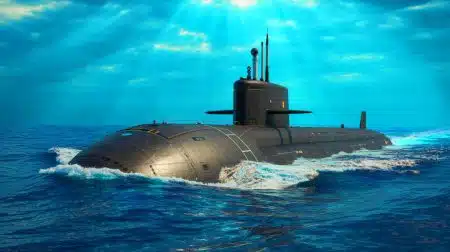
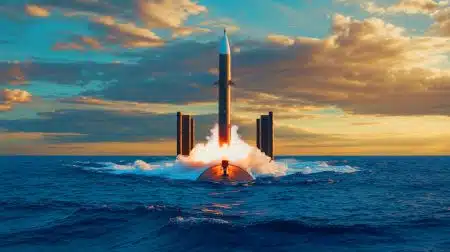
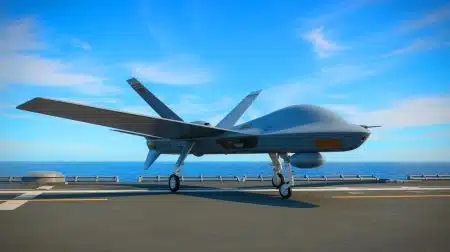

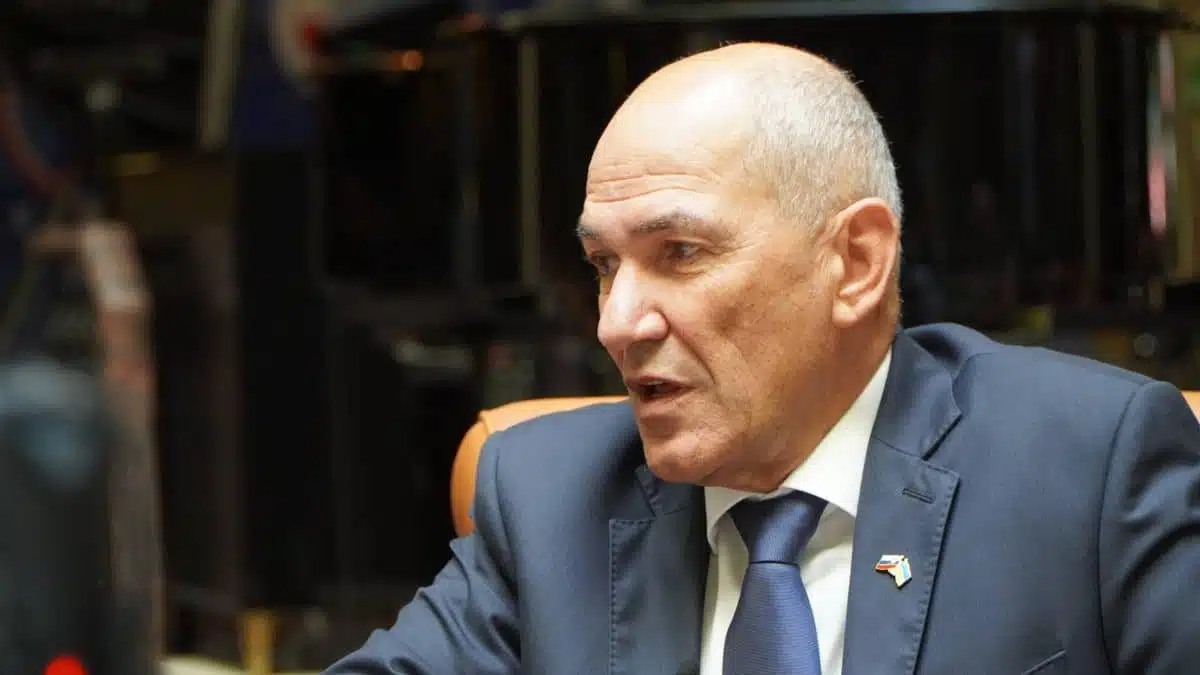
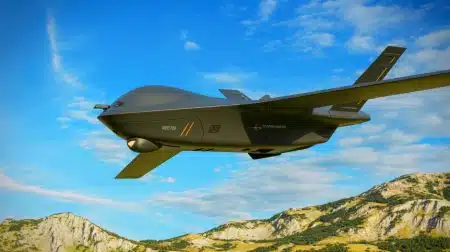
Thank you for the insightful interview. It’s fascinating to hear Janša’s perspective on European democracy. 🙏
Isn’t it a bit ironic that Janša talks about democracy after being convicted of corruption? 🤨
How do the political processes in Europe differ from those in Slovenia, according to Janša?
Great interview! I learned a lot about Slovenia’s political history. 🇸🇮
Is Janša suggesting that the EU should prioritize military alliances over democratic values?
Marshal Twitto sounds like a fun nickname! 😆
Why does Janša think that the Visegrád Group is crucial for Europe’s security?
Interesting take on Ukraine. Do you agree with Janša’s stance on military aid?